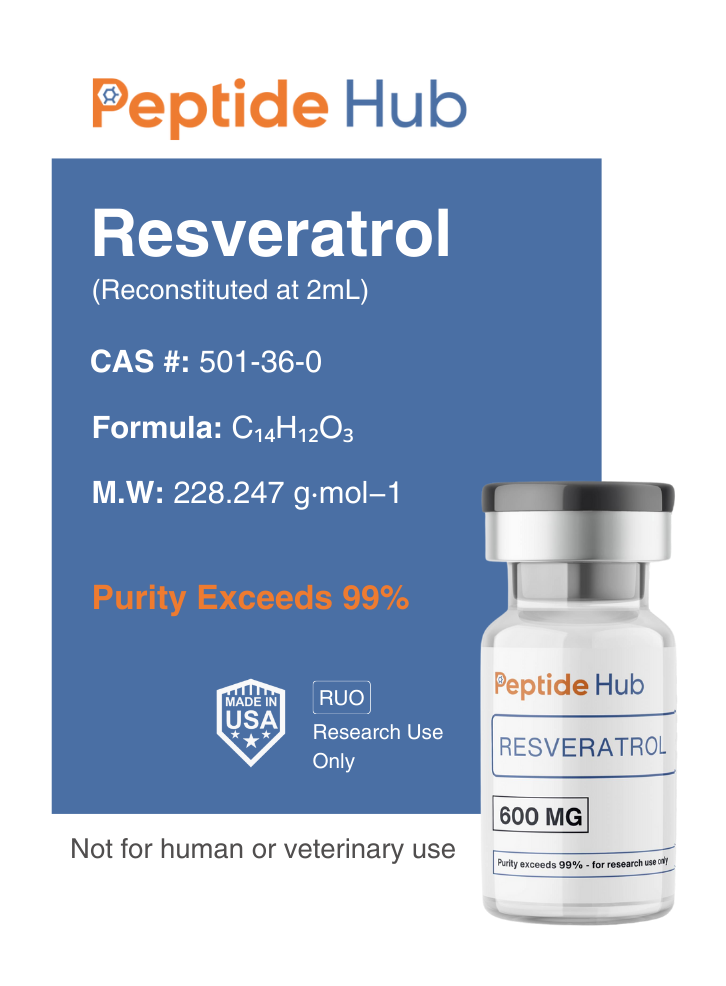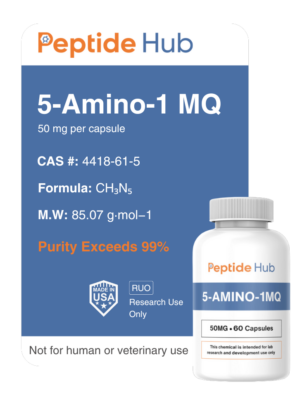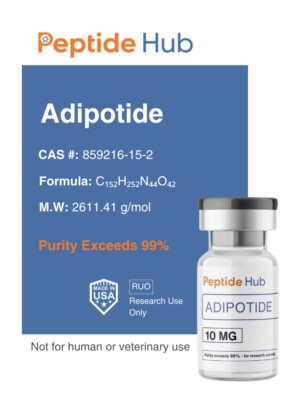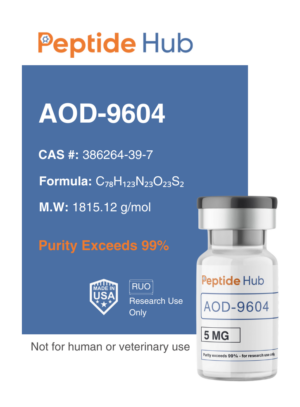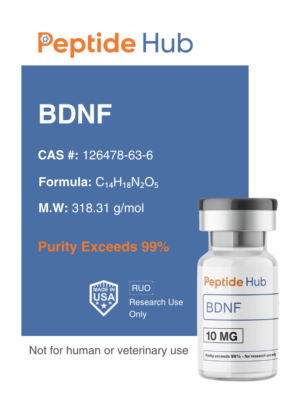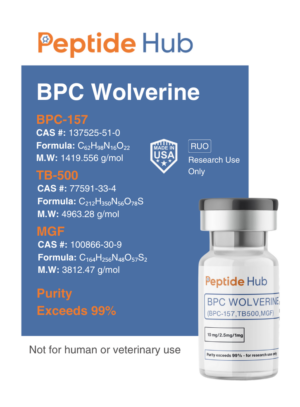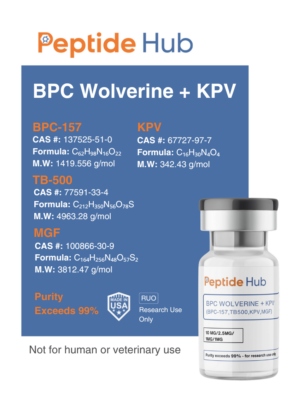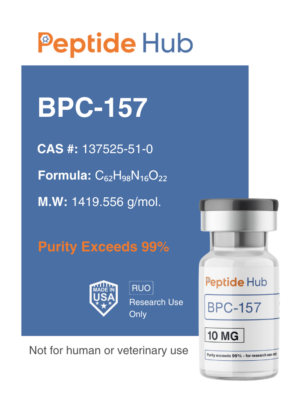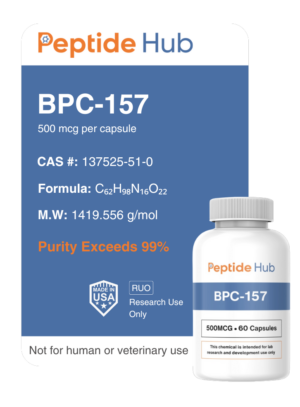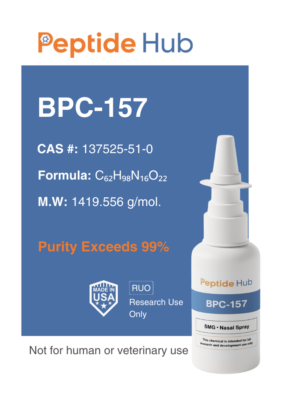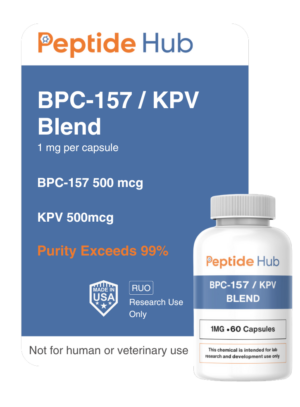Resveratrol – 200mg
$200.00

99% Purity

3rd Party Tested

USA Made
Resveratrol
Resveratrol is a naturally occurring polyphenol found in plants, particularly in grapes, berries, and peanuts. It is widely studied for its potential antioxidant, anti-inflammatory, and anti-aging properties. Research into resveratrol has focused on its role in protecting cells from oxidative stress, promoting cardiovascular health, and supporting healthy aging processes.
Potential Research Applications
Resveratrol is currently being explored in research settings for its role in:
- Antioxidant Properties: Studied for its potential to neutralize free radicals and protect cells from oxidative damage.
- Anti-inflammatory Effects: Investigated for its ability to reduce inflammation and its possible therapeutic effects on chronic conditions.
- Longevity Research: Examined for its potential to activate genes related to aging and extend lifespan.
- Cardiovascular Health: Explored for its effects on improving blood vessel function, blood pressure, and heart health.
✔ High-Quality Research Peptides – Produced under stringent quality control standards.
✔ Lab-Tested for Purity – Ensures consistency for scientific studies.
✔ Research Use Only – Not for human consumption or medical applications.
✔ Peptides – Will arrive reconstituted.
The peptides are available for research and laboratory purposes only. Please review and ahere to our Terms and Conditions before ordering.
- Description
- Certificate of Analysis
Resveratrol – 200mg is a polyphenol known for its potent antioxidant and anti-inflammatory properties. Researchers study this compound to understand its role in promoting cellular health, protecting against oxidative damage, and supporting longevity. Additionally, it has gained attention for its potential to regulate metabolic pathways and improve mitochondrial function.
Scientists investigate how resveratrol activates key enzymes such as sirtuins, which play a critical role in cellular repair, aging, and metabolic regulation. Moreover, they examine how resveratrol enhances antioxidant defense by neutralizing free radicals and reducing oxidative stress. These findings help explain how resveratrol may protect cells from damage linked to aging and degenerative diseases.
Furthermore, researchers assess resveratrol’s effects on cardiovascular and metabolic health. They study how it improves blood vessel function, reduces inflammation, and supports glucose metabolism. By targeting these pathways, resveratrol provides valuable insights into preventing conditions like cardiovascular disease and insulin resistance.
Each 200mg batch of resveratrol undergoes rigorous testing to ensure high purity and potency. Researchers rely on its consistency to produce reliable results in studies focused on cellular protection, metabolism, and anti-aging strategies.
Finally, resveratrol continues to drive advancements in research related to oxidative stress, longevity, and metabolic health. Through its diverse biological effects, it helps scientists develop new approaches to enhance cellular resilience, promote healthy aging, and reduce the risk of chronic diseases.
No Certificate of Analysis images available for this product.

